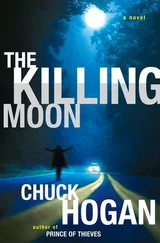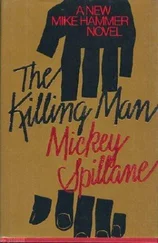Daniel Polansky - Tomorrow, the Killing
Здесь есть возможность читать онлайн «Daniel Polansky - Tomorrow, the Killing» весь текст электронной книги совершенно бесплатно (целиком полную версию без сокращений). В некоторых случаях можно слушать аудио, скачать через торрент в формате fb2 и присутствует краткое содержание. Жанр: Старинная литература, на английском языке. Описание произведения, (предисловие) а так же отзывы посетителей доступны на портале библиотеки ЛибКат.
- Название:Tomorrow, the Killing
- Автор:
- Жанр:
- Год:неизвестен
- ISBN:нет данных
- Рейтинг книги:3 / 5. Голосов: 1
-
Избранное:Добавить в избранное
- Отзывы:
-
Ваша оценка:
- 60
- 1
- 2
- 3
- 4
- 5
Tomorrow, the Killing: краткое содержание, описание и аннотация
Предлагаем к чтению аннотацию, описание, краткое содержание или предисловие (зависит от того, что написал сам автор книги «Tomorrow, the Killing»). Если вы не нашли необходимую информацию о книге — напишите в комментариях, мы постараемся отыскать её.
His name is Warden.
He thought he had left the war behind him, but a summons from up above brings the past sharply, uncomfortably, back into focus. General Montgomery's daughter is missing somewhere in Low Town, searching for clues about her brother's murder. The General wants her found, before the stinking streets can lay claim to her, too.
Tomorrow, the Killing — читать онлайн бесплатно полную книгу (весь текст) целиком
Ниже представлен текст книги, разбитый по страницам. Система сохранения места последней прочитанной страницы, позволяет с удобством читать онлайн бесплатно книгу «Tomorrow, the Killing», без необходимости каждый раз заново искать на чём Вы остановились. Поставьте закладку, и сможете в любой момент перейти на страницу, на которой закончили чтение.
Интервал:
Закладка:
I had him on the ground, my hands squeezing the blood into his face and the life out of his body, when it occurred to me that the back ranks had been awful slow to come to my aid. As a last gasp escaped past his lolling tongue I took a quick look up and discovered with a sinking horror that the lack of attention came by virtue of there being no one around to provide it. Our line had broken, utterly, and apart from Adolphus there were none of us left standing. It seemed that while I had been caught up in strangling a man to death the remainder of our division had assessed the situation and decided that the course of greatest wisdom lay in vacating the area with all possible speed.
Warfare is based on a sort of mass hysteria by which the individual mistakes his own well-being for that of the collective, but as solid as the mania may seem on march, it punctures mighty quick in the heat of battle. One moment you’re walking in lockstep, no more cognizant of your own particular existence than is a drop of blood filtering through the heart. Then some unfortunate setback occurs, entirely disabusing you of the absurd fiction that anything could possibly matter more than forestalling your own death, and you throw down your weapon and sprint for the back, willing to trample your fellow soldiers into the ground should they prove an impediment to your escape.
It’s then that the rock-bottom of a man’s character comes out, when you get to learn who it is you’ve been bunking and eating and shitting with. Though the battle was lost and our cause vanquished, you couldn’t have figured it from Adolphus, for whom the defeat of our army had been forgotten in the sheer joy of combat. He let out a roar that would have done credit to a lion, shoved back the Dren who opposed him and laid out left and right with his pole, snapping the neck of one man and notching the brain-pan of another, cowing the surrounding infantry and earning us a brief moment of respite.
He was continuing forward even then, but I got a hand on the back of his armor, not enough to check his progress but sufficient to focus his attention on me. ‘Adolphus!’ I screamed, trying to make myself heard over the fray. ‘We’re done! Let’s go!’
He gave a mournful look back at the enemy, a handful of whom had neglected to fall upon our fleeing comrades and were instead showing disturbing signs of renewed hostility.
‘Now, Adolphus!’ I said again, in what I would later come to think of as my ‘command voice.’ He gave a quick nod, and together we began to fall back.
The nature of a rout is that it sends the victors into nearly as much confusion as the vanquished, as if you threw yourself against a locked door only to find it giving way at your touch. Though our side had ceased even the semblance of being an organized body, the Dren seemed but little more ordered. Some were hot on the heels of our retreating fellows, hoping to down their quota. Some had already started on the grim but lucrative business of looting the corpses. And a great many, an astonishing percentage really, milled about in aimless confusion.
If you can maintain some sense of direction in such bedlam you’ve got an advantage, and between the two of us we managed a capable fighting withdrawal. I picked up a stray pike and held it parallel with Adolphus’s, edging it warily at anyone who came too close, falling backwards gradually and with purpose. Mostly those Dren pursuing our shattered rear didn’t bother with us, not when there were easier targets swarming all around.
The march in had only taken us ten minutes, but going back took us twice as long, three times, hell, five, I don’t know. It seemed an eternity, dead and dying everywhere you looked, the population of a fair-sized town made into mounds of rotting flesh. And the screaming, by the Firstborn, the screaming. It was like a strong wind, thousands of men hurling their misery at you, their terror and hatred.
At one point I tripped over a corpse and added to the song, certain that Adolphus would prioritize his own survival over our newly minted friendship. But he didn’t – he stood over me steady as a statue, and the enemy stayed clear.
Things eased off once we got back to the baggage train. The Dren quickly lost interest in murder, turned to scooping up anything that could be eaten, drunk, sold or fucked. By nightfall we were five miles back from the front, trying to find our unit amongst the mass of broken men, the wounded dying unattended, the officers no more capable of offering succor than they had been of saving us from the catastrophe of the day.
And that was that – twenty minutes on a bright autumn afternoon sounding the death knell on set-piece warfare, of fluttering pendants, of regimental musicians beating the score, of cavalry charges and men in tight formation. From then on it was all shovels and trenches, dugouts of mud and shit, scorching in summer and freezing in winter, and of course, always wet. Tactics switched to dead sprints across the barrens of no-man’s-land in the dark of night, armies of men as huge and profligate as locusts, suiciding themselves without order, purpose or reason.
4
There are vast swathes of the middle and upper classes who are born in the city, who live and work in Rigus all their lives, who marry and spawn seed and are buried beneath their fair portion of dust, and who never at any point set foot within Low Town. For these people, Low Town occupies a position analogous to an agnostic’s view of hell – abstractly unpleasant, but unworthy of overmuch consideration, given the dim odds of ever finding oneself there. They come to think of it, if they think of it at all, as something extraneous, irrelevant to their own existence.
As widely held beliefs tend to be, this one is entirely false. Low Town is not separate from Rigus – neither its stray effluvium nor its bastard offspring. Low Town is the heart and soul of the metropolis, as much as the Old City with the palace and parliament, with its glittering citadels and wide lanes. The rich and well fed need Low Town as much as those who inhabit it, need a place away from the kindled lights, close enough to reach after nightfall but far enough away so the stink doesn’t follow them home.
In the false distance between the two worlds the factor earns their supper. Say you’re an uptown merchant or a baronet, and you find yourself needing a den for late-evening assignations, the ownership of which ought never find its way back to your wife – no problem, sir, not a problem at all. Hand over a few ochres and you’ll get your little love nest, a quaint walk-up just over the line from Offbend, with nary a piece of paper to link you to it. And let’s suppose, having acquired such a fine piece of real estate, you have an interest in filling it with a buxom lass and a few twists of dreamvine, or a comely youth and ouroboros root, or prepubescents and wyrm – well, your intermediate knows many different sorts of folk, sir, and would never grudge a fellow his pleasure. Not a decent, well-born sort such as yourself, sir. And continuing on with our imaginings, let’s say your better half was to sniff out your paramour or grow suspicious as to where exactly her dowry is disappearing to, decides to make a nuisance of herself – then, as was said, sir, the factor knows all sorts of folk, all sorts of folk indeed, and he suspects he could help you out of that little difficulty as well.
It’s a dirty sort of business, and even by common standards, Iomhair Gilchrist was a particularly unpleasant incarnation. Servile and treacherous, his sole constant an infatuation with short money that blinded him to the long. Too clever by half, and quick to forget he was a coward until things went to push. Odds suggested he’d end up dead in an alley, and I was always a little surprised to discover that coin unclaimed. Not that we’d ever had much contact – aside from his propensity for betrayal, I found him to be, on a personal level, as foul as a whore’s privates.
Читать дальшеИнтервал:
Закладка:
Похожие книги на «Tomorrow, the Killing»
Представляем Вашему вниманию похожие книги на «Tomorrow, the Killing» списком для выбора. Мы отобрали схожую по названию и смыслу литературу в надежде предоставить читателям больше вариантов отыскать новые, интересные, ещё непрочитанные произведения.
Обсуждение, отзывы о книге «Tomorrow, the Killing» и просто собственные мнения читателей. Оставьте ваши комментарии, напишите, что Вы думаете о произведении, его смысле или главных героях. Укажите что конкретно понравилось, а что нет, и почему Вы так считаете.












